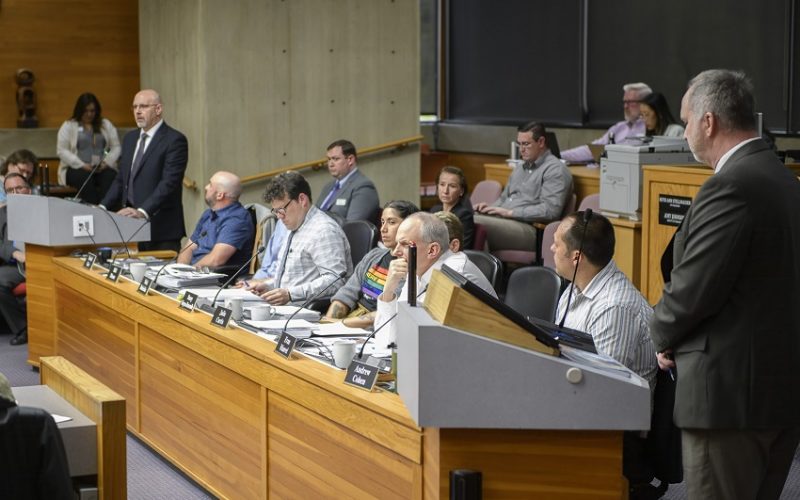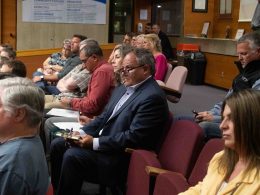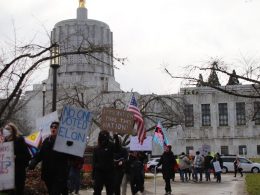Salem, OR – This month, residents of Salem will head to the polls to decide the fate of a proposed property tax levy that could significantly impact the city’s budget and services. The levy, aimed at alleviating financial strain on the city’s general fund, is a response to years of deep budget cuts and mounting fiscal challenges. With funding for essential services like the Salem Public Library, city parks, and senior programs at Center 50+ at risk, voters’ decisions could shape the future of these community resources.
The proposed levy is the latest in a series of attempts by the city to balance its budget. Over the past few years, Salem has grappled with increasing budget deficits, as costs outpace revenue. This financial imbalance has been exacerbated by state-mandated pension payments and limitations on property tax revenue established in the 1990s. These measures have capped the amount of property tax the city can generate, leaving Salem with fewer resources to meet the growing demand for services.
City leaders have warned that without additional funding, critical programs could face deep cuts. The Salem Public Library, a vital community resource, is already experiencing the effects of reduced funding, with limited hours and fewer staff members. Parks, which many residents rely on for recreation and relaxation, could also see reduced maintenance and fewer services. Center 50+, which provides support to older adults, is another area that could face severe budget reductions.
The property tax levy is seen by many as the last resort to prevent further cuts. If passed, it would generate additional revenue to fund essential city services, but it also comes with a cost for homeowners. Some voters have expressed concern about the impact of higher property taxes, particularly those already struggling with the cost of living.
For city officials, the choice is clear: without the levy, Salem will face a financial crisis that could further erode the quality of life for its residents. “We’ve been through years of budget cuts, and this levy is the best chance we have to keep our community strong,” said one city council member. However, opponents argue that increasing taxes could place undue pressure on homeowners, particularly in a city where housing costs are already on the rise.
As Election Day approaches, Salem residents will have to weigh the potential benefits of preserving vital city services against the financial burden of higher taxes. The outcome will not only determine the city’s fiscal future but also shape the lives of those who rely on these services every day.











